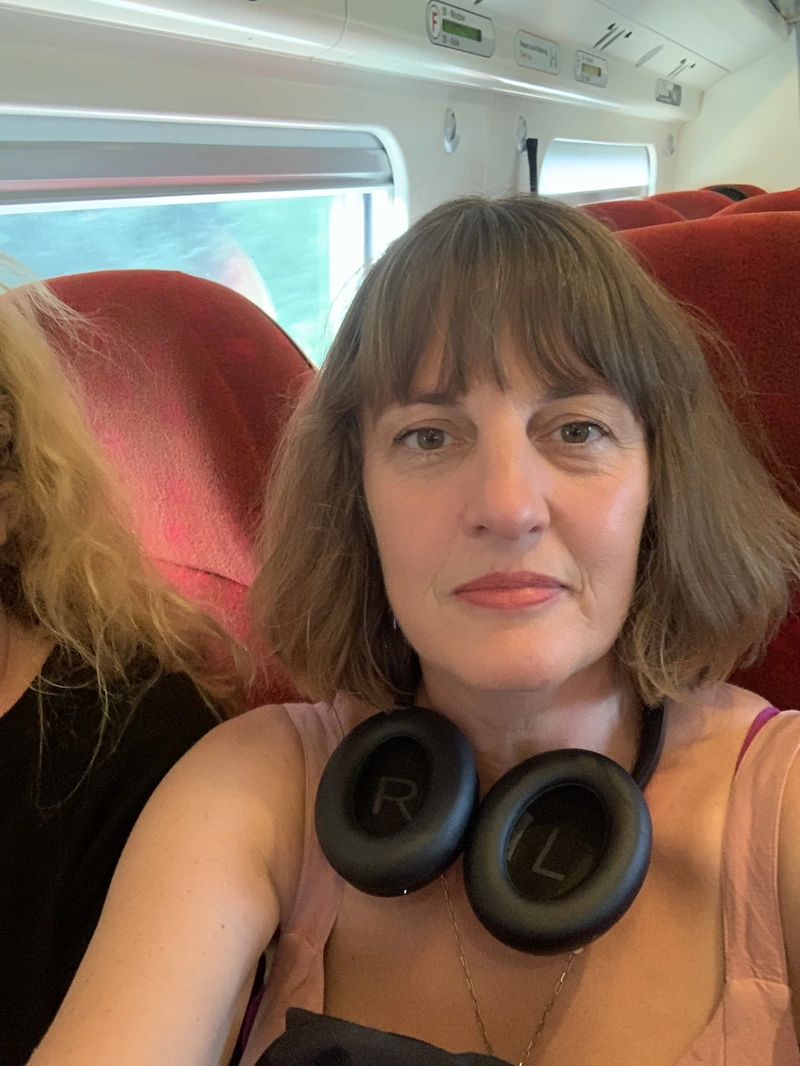Emily says
"The ADHD brain is not a follower, it’s an explorer."
Week one


As we step into October, we are excited to share that it is ADHD Awareness Month, a time to shine a light on Attention Deficit Hyperactivity Disorder and deepen our understanding of how we can best support and celebrate our young people’s experience of ADHD. Here is our first series of content, tips, and strategies that may be of interest or help to you.

ADHD or Attention Deficit Hyperactivity Disorder is a term widely used but not often fully understood. The language surrounding ADHD often speaks of deficit and problems. Everyone who has ADHD (whether diagnosed or not) will have a unique experience of how it impacts on their lives, but the symptoms include inattention, hyperactivity and impulsivity. There are 3 different types of ADHD:

It can be hard to put yourselves in the shoes of someone who experiences the world differently to you. If you have ADHD it can also be hard to share your experiences with others and advocate for what you need. If you want to consider what a day in the life living with ADHD may look like and feel like these may be helpful to you!
My ADHD can feel like a bull in a china shop. Most don’t understand how I can get so distracted and move on to the next thing so fast. How I can lose something that was just in my hand! Some think its just an excuse, but its so much more than that.
Imagine for a moment trying to do a task or work with someone constantly shouting in your ear, “look, what’s that”, “look over there”, while another person is dancing in front of you! That’s what’s ADHD feels like.
Don’t get me wrong. I’m lucky and largely see my ADHD as something to embrace but the stress, the overwhelm and the overthinking can be exhausting. My reaction to feeling like this is to mask until the ADHD bursts out of me like a volcano; all my thoughts and feelings exploding, often triggered by a small thing but as a response to masking for so long. I’m not being dramatic.
If I was to describe my ADHD when its working against me…its like an elephant trying to learn ballet. Its not a very nice feeling when people put pressure on you…..”why cant you just dance”!
If I were going to give you any advice about how to support a young person with ADHD it would be this:
Be patient. Our brains need time to process things. There is a lot going on in our brains that we need to go through.
The more pressure ADHD feels the more ADHD will play up. When ADHD plays up it can feel like a child at a checkout having a tantrum in your brain. Try not to pressure an ADHD person to think like you do!
Try not to use words like dramatic and sensitive. The feelings for a ADHD person are very real. We need patience and understanding.
The ADHD brain works better when it’s trusted to work things out for it self. Be alongside us, as we may get distracted and need some support, but don’t tell us.
Sometimes ADHD will become hyper focused. This means we really invest in a task of topic and will struggle to think about anything else. If it’s a positive hyperfocus, please come along for the ride, although we still may get bored of whatever it is. If is negative, be patient, understanding and maybe offer something more sparkly to pay attention to instead.
Most of all know that most of us do our best. ADHD can be amazing to be with and make sure you notice these parts as well.
This webinar explains the process of diagnosing ADHD, covering what’s involved, how to pursue a diagnosis, and the potential benefits for young people and those supporting them. It provides an overview of the steps, assessments, and considerations for determining if an ADHD diagnosis is appropriate. Watch below to gain insights into the diagnostic journey and how it can positively impact support strategies.


When we talk about ADHD we often talk about problems and deficit. The name itself Attention Deficit Hyperactivity Disorder doesn’t exactly market it as something positive! But what if we were to rebrand it in a way which fully embraces the full experience of ADHD?
In acknowledging the struggles that ADHD can invite into a person’s life, we often lose sight of the characteristics of ADHD that can be amazing and inspiring to be around. If you have ADHD and have lived experience of always feeling as though you’re colouring outside of the lines or have heard messages more than most of “why can’t you just…”, why do you keep doing that? “you just need to learn” then it’s also hard to recognise some of the strengths of ADHD. So what are some of the amazing parts of having ADHD? Some of the possibilities may include:
There are so many more. Dig into these resources to find out more.

We can't discuss ADHD without mentioning executive functioning, a crucial brain process that manages everyday tasks. These tasks include working memory, planning, prioritising, time management, emotional regulation, focus, organisation, and self-control.
Several models of executive functioning can guide our understanding, some of which are shared in the links below.
ADHD directly impacts executive functioning, which plays a key role in the challenges associated with ADHD. Behaviours that may seem intentional are often a result of how the brain is wired or the individual's coping mechanisms. For example, if someone frequently struggles with tasks due to executive functioning difficulties and faces criticism, they might become a people-pleaser or avoid tasks that require higher levels of executive function, like tidying a room.
Consider homework: a child who struggles to begin may seem "bored" or "unmotivated." Traditional responses might involve instructions, rewards, or consequences. However, when viewed through the lens of executive functioning, this behaviour signals a need for a different approach. Below are some strategies to support children with ADHD and help them manage these challenges.

In this episode of our learning podcast, Ed is joined by Xanthe, an ADHD coach, and Emma, a supervising social worker and foster carer. Together, they explore the complexities of ADHD in both adults and young people, particularly within the context of foster care. Xanthe shares insights on how ADHD coaching helps individuals form a better relationship with their ADHD, empowering them to understand their brains and thrive. Emma offers her perspective on supporting foster carers and young people with ADHD, sharing personal experiences and professional insights. The conversation delves into the struggles of everyday tasks like brushing teeth, and how the ADHD brain needs autonomy and creativity to navigate challenges. We also explore how to avoid shame and instead celebrate the strengths that ADHD brings.
This episode provides practical advice and heartfelt discussion on how to support young people and adults in managing ADHD. Join us as we uncover ways to celebrate neurodiversity and create supportive environments for those with ADHD.
This webinar focuses on study skills and strategies to support young people with ADHD in completing homework and studying effectively. It provides practical tips to help foster carers understand ADHD-related challenges in academic settings, including maintaining focus, organising tasks, and managing time. Watch below to learn techniques that make studying a more positive and productive experience for young people with ADHD.

"The ADHD brain is not a follower, it’s an explorer."

